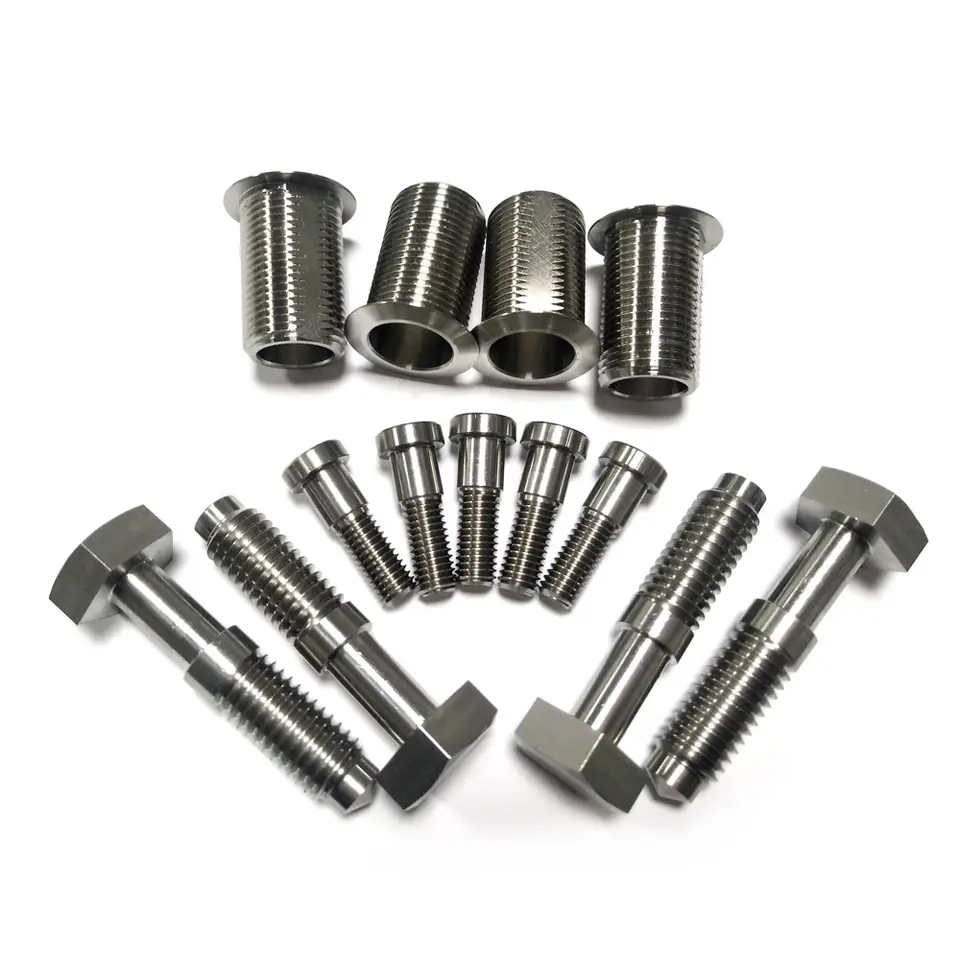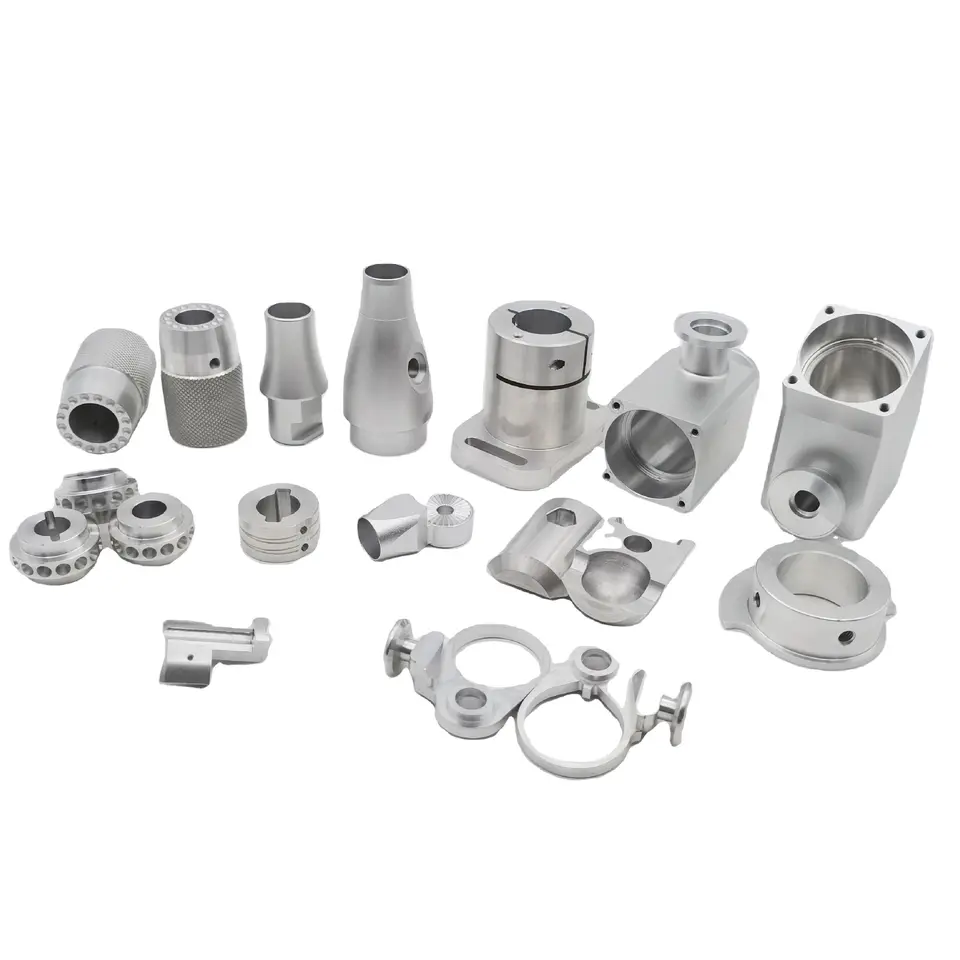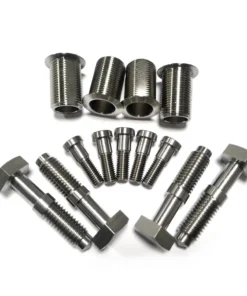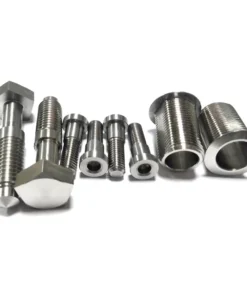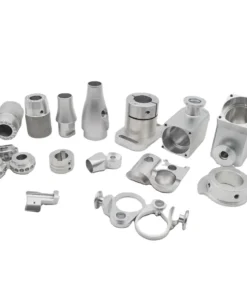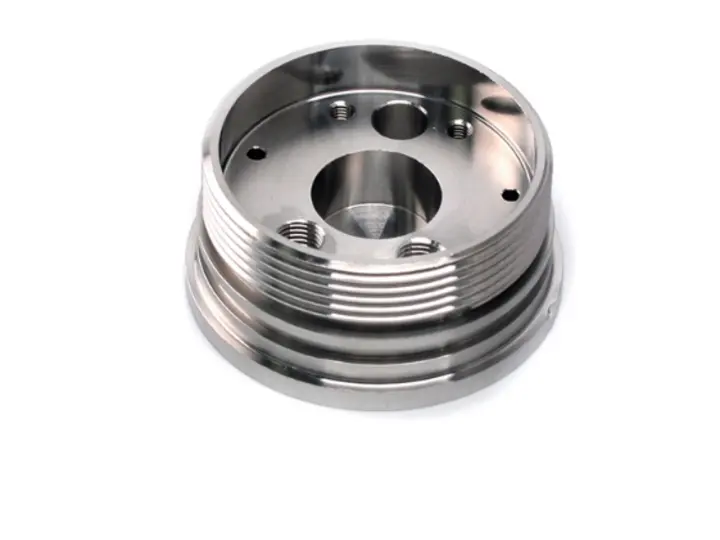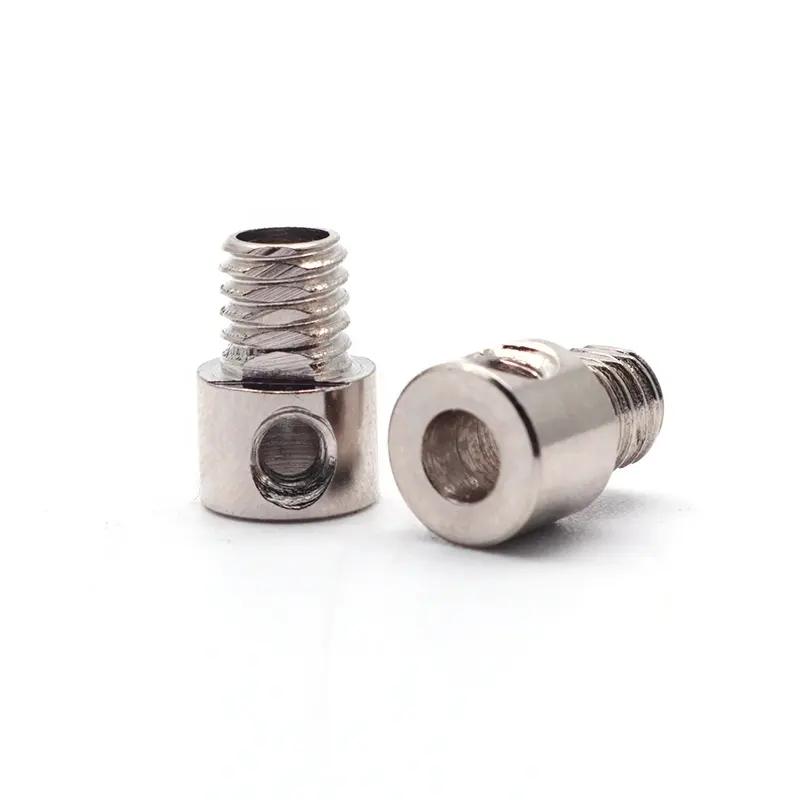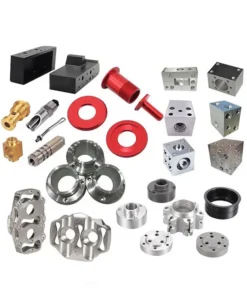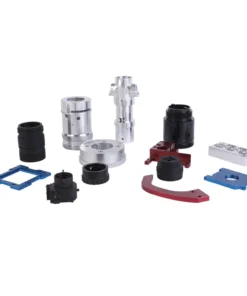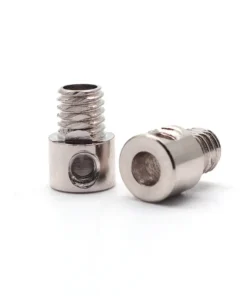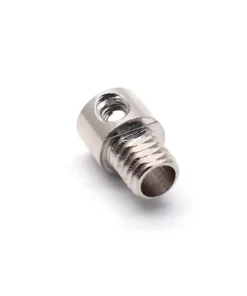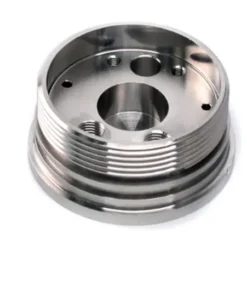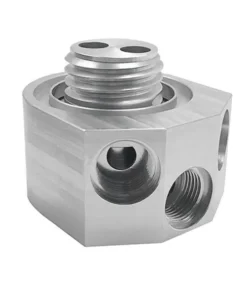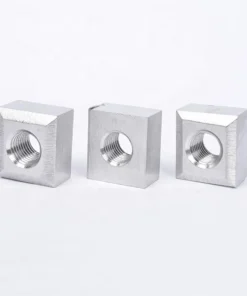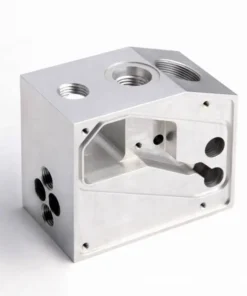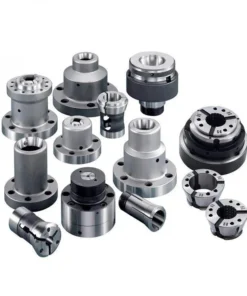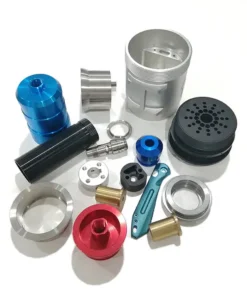Vertical mills, a cornerstone in many manufacturing processes, rely heavily on their constituent parts to function optimally. These parts, often intricate and precisely engineered, play a pivotal role in ensuring the efficiency and reliability of the milling process. As industries evolve, the demand for high-quality vertical mill parts has surged, especially from leading suppliers in China, known for their manufacturing prowess.
Vertical Mill Parts: At the heart of many industrial operations, vertical mills are machines designed to grind or pulverize materials into finer particles or powders. These mills achieve this through the use of rotating grinding rollers and a stationary grinding table, all of which are powered by robust motors. The efficiency and performance of these mills are heavily reliant on their parts, which need to be both durable and precise.
Importance in Various Industries: Vertical mills find applications in numerous industries, including cement production, power generation, metallurgy, and more. The quality of the parts in these mills directly impacts the quality of the final product, be it cement, coal powder, or any other material. As such, industries prioritize sourcing the best vertical mill parts to ensure uninterrupted operations and high-quality outputs.
In the next sections, we’ll delve deeper into the intricacies of these parts, the expertise of Wuxi Lead Precision Machinery in producing them, and essential tips for international buyers sourcing from China.
Understanding Vertical Mill Parts
Vertical mills, with their towering stature and intricate mechanisms, are a marvel of engineering. At the core of their efficiency are the vertical mill parts, each playing a distinct role in the milling process.
- Basic Components and Their Functions:
- Grinding Rollers: These cylindrical rollers pulverize material as they roll over the grinding table. Made from high-quality materials, they’re designed to withstand the intense pressures of milling operations.
- Grinding Table: This is where the action happens. Materials are fed onto this table, where they’re ground into fine particles by the grinding rollers.
- Classifier: An essential part for sorting and separating the pulverized materials based on size.
- Hydraulic System: This system controls the pressure exerted by the grinding rollers, ensuring optimal pulverization.
- Gearbox: Transfers the motor’s rotational energy to the grinding table and rollers, ensuring they operate at the right speeds.
- Differences between Horizontal and Vertical Mill Parts: While both types of mills serve similar purposes – grinding and pulverizing materials – their design and operational differences lead to distinct parts. Horizontal mills, for instance, have a horizontally oriented spindle and typically use arbors for holding tooling. Vertical mills, on the other hand, have a vertically aligned spindle, and the tooling is held directly by the spindle or attached to a quill.
Wuxi Lead Precision Machinery: A Trusted Name in Custom Metal Fabrication
In the realm of custom metal fabrication and precision machining, Wuxi Lead Precision Machinery stands out as a beacon of excellence. With a rich history and a commitment to innovation, this China-based company has become synonymous with quality and reliability.
- Company’s Expertise: Wuxi Lead specializes in a range of services, from CNC machining to metal stamping and sheet metal fabrication. Their state-of-the-art facility, combined with a team of skilled professionals, ensures that every product meets the highest standards of precision and quality.
- Commitment to Quality and Swift Delivery: Quality isn’t just a buzzword at Wuxi Lead; it’s ingrained in their ethos. Every vertical mill part undergoes rigorous inspections to ensure it meets international standards. Moreover, their advanced machinery and efficient processes guarantee swift delivery, ensuring clients’ operations remain uninterrupted.
Types and Applications of Vertical Mill Parts
Vertical mills, given their versatility, find applications in various industries. The types of parts and their specific applications can vary based on the industry and the material being processed.
- Different Types of Parts: Beyond the basic components, vertical mills might also include parts like rocker arms, swing levers, and tensioning rods, each tailored for specific milling operations.
- Industries That Rely on Vertical Mills: From the cement industry, where they’re used to grind raw materials, to power generation plants that pulverize coal, to metallurgical processes that require finely ground ores, vertical mills are indispensable. The quality and precision of the mill parts play a crucial role in ensuring the efficiency of these processes.
Production Process of Vertical Mill Parts at Wuxi Lead Precision Machinery
Manufacturing vertical mill parts is a meticulous process that demands precision, expertise, and a commitment to quality. Wuxi Lead Precision Machinery, with its state-of-the-art facilities and seasoned professionals, ensures that every part produced meets the highest standards.
- Raw Material Selection: The journey begins with the selection of high-quality raw materials. Depending on the part’s requirements, materials like cast iron, steel, or specialized alloys are chosen for their durability and performance attributes.
- Machining and Shaping: With the raw materials in place, the machining process commences. Using advanced CNC machines, the materials are shaped, cut, and refined to match the exact specifications. This step ensures the parts’ precision and compatibility with the vertical mill.
- Heat Treatment: To enhance the durability and longevity of the parts, they undergo a heat treatment process. This step ensures the parts can withstand the intense pressures and stresses of milling operations.
- Quality Control and Inspection: At Wuxi Lead, quality isn’t an afterthought—it’s an integral part of the production process. Each part undergoes rigorous inspections using advanced tools to ensure they meet the set standards and specifications.
- Packaging and Dispatch: Once the parts pass the quality checks, they are carefully packaged to prevent any damage during transit. With a robust logistics network, Wuxi Lead ensures timely deliveries to clients worldwide.
Questions International Buyers Should Ask When Sourcing from Wuxi Lead Precision Machinery
Sourcing vertical mill parts, especially from overseas, requires due diligence. Here are some pivotal questions international buyers should consider:
- What’s the Production Capacity? Understanding the manufacturer’s production capacity can give insights into their ability to handle bulk orders and meet delivery timelines.
- How Do You Ensure Quality Control? A clear understanding of the quality control measures in place can instill confidence in the product’s reliability and durability.
- Can You Provide Client Testimonials or Case Studies? Past performance can be a reliable indicator of the manufacturer’s credibility and expertise.
- What Are the Payment Terms and Conditions? Clarity on payment terms can prevent any misunderstandings or disputes down the line.
- Do You Offer After-Sales Support? Post-purchase support, be it in the form of maintenance tips or part replacements, can be a valuable addition.
FAQ Tips for Purchasers of Vertical Mill Parts
Navigating the world of vertical mill parts can be intricate. Here are some frequently asked questions to guide purchasers in their decision-making process:
1. What materials are commonly used in the production of vertical mill parts?
- Wuxi Lead Precision Machinery primarily uses high-quality materials like cast iron, steel, and specialized alloys, ensuring durability and optimal performance.
2. How do vertical mill parts differ from horizontal mill parts in terms of functionality?
- While both types serve the purpose of grinding or pulverizing materials, vertical mill parts are designed for vertical milling machines with a vertically aligned spindle. Horizontal mill parts, on the other hand, cater to horizontal milling machines with a horizontally oriented spindle.
3. Can Wuxi Lead Precision Machinery customize vertical mill parts based on specific requirements?
- Absolutely! Wuxi Lead welcomes customization requests, ensuring that clients receive parts tailored to their unique operational needs.
4. How does Wuxi Lead ensure the longevity and durability of its vertical mill parts?
- Through a combination of using premium raw materials, advanced machining processes, and rigorous quality control measures, Wuxi Lead guarantees the longevity and durability of its parts.
5. Are there any maintenance tips for prolonging the life of vertical mill parts?
- Regular inspections, proper cleaning, and adhering to operational guidelines can significantly prolong the life of vertical mill parts.
6. How does Wuxi Lead handle bulk orders and ensure timely deliveries?
- With state-of-the-art facilities and a dedicated workforce, Wuxi Lead can efficiently handle bulk orders. Their robust logistics network ensures timely deliveries worldwide.
7. What sets Wuxi Lead Precision Machinery apart from other manufacturers in China?
- Wuxi Lead’s commitment to quality, client-centric approach, competitive pricing, and unparalleled expertise make it stand out in the competitive market.
8. Are the vertical mill parts produced by Wuxi Lead compatible with all vertical mill models?
- While Wuxi Lead produces parts compatible with a wide range of vertical mill models, it’s always advisable to provide specific model details to ensure perfect compatibility.
9. How does Wuxi Lead address any potential issues or defects in the parts supplied?
- Wuxi Lead has a dedicated after-sales support team that promptly addresses any concerns, ensuring client satisfaction remains paramount.
10. Can international buyers visit Wuxi Lead’s production facility for a firsthand look?
- Yes, Wuxi Lead welcomes potential buyers to visit their state-of-the-art facility, offering a transparent look into their production processes and quality control measures.


